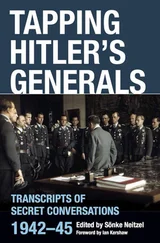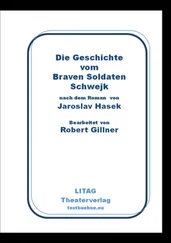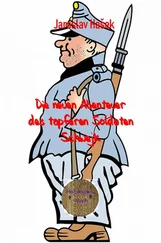What the Soldiers Discussed [1] Translator’s note: The excerpts from surveillance protocols made in British POW camps come from the original British military translations during World War II. Translations of excerpts from American POW camps are my own.
“I heard of a case of two fifteen-year-old boys. They were wearing uniform and were firing away with the rest. But they were taken prisoners. A corporal in hospital told me that. They were wearing soldiers’ uniform, so what could one do. And I myself have seen that there are twelve-year-old boys in the Russian Army, in the band, for instance, wearing uniform. We once (captured) a Russian military band and they played wonderfully. It was almost too much for you. There was such depth of feeling and yearning in their music; it conjured up pictures of the vastness of RUSSIA. It was terrific, it thrilled me through and through. It was a military band. To get back to the story, the two boys were told to get back westward and to keep on the road. If they tried to run into the woods at the first bend of the road they would get a bullet in them. And they were scarcely out of sight when they slunk off the road, and in a flash they had disappeared. A large detachment was immediately sent to look for them, but they couldn’t find them. And then they caught the two boys. Those were the two. (Our people) behaved well and didn’t kill them there and then, they took them before the C.C. [concentration camp] again. Now it was clear that they’d done for themselves. They were made to dig their own graves, two pits, and then one of them was shot. He didn’t fall into the grave, he fell forwards over it. The other was told to push the first one into the pit before he was shot himself. And he did so, smiling—a boy of fifteen! There’s fanaticism and idealism for you”! {2} 2 SRA 2670, 20 June 1942, TNA, WO 208/4126.
This story, as told by Staff Sergeant Schmid on June 20, 1942, typifies how the soldiers talk in the protocols. As in all everyday conversations, the speaker repeatedly changes the subject, following a chain of associations. In the middle, when Schmid is talking about music, it occurs to him how much he enjoys Russian music, whereupon he briefly describes it before continuing his narrative. Schmid’s anecdote begins harmlessly enough, but turns truly horrific at the end with the execution of the two young Russian soldiers. The narrator reports that not only were the two youths murdered, they were made to dig their own graves. The execution runs into a complication, and that leads to the eventual moral of the story. The young soldier about to be killed proves “fanatic” or “idealistic,” eliciting the staff sergeant’s admiration.
At first glance what we have here is a spectacular combination of topics—war, enemy soldiers, youths, music, Russian expanses, crimes against humanity, and admiration for one’s adversary—that don’t seem to cohere. Yet they are narrated in a single breath. That is the first thing we need to recognize. The stories we will be examining in this book deviate from what we expect. They were not intended to be well rounded, consistent, or logical. They were told to create excitement, elicit interest, or provide space and opportunity for the interlocutor to add commentary or stories of his own. In this respect, as is true for all everyday conversations, the soldiers’ stories tend to jump around in interesting ways. They are full of ruptures and sidebar narratives, and they aim to establish consensus and agreement. People do not converse solely in order to exchange information but to create a relationship with one another, establishing commonalities and assuring themselves that they are experiencing one and the same world. The soldier’s world is that of war. That is what makes their conversations seem so extraordinary to readers today. For the soldiers themselves, they were perfectly normal.
The brutality, harshness, and absence of emotion of war are omnipresent, and that is what is so disturbing for us reading the dialogues today, more than sixty years after the fact. Involuntarily, we can only shake our heads in dismay and frequent incomprehension. Yet in order to understand the world of these soldiers, and not just our own world, we need to get beyond such moral reactions. The matter-of-factness with which extreme acts of brutality are related shows that killing and the worst sorts of violence were part of the narrator’s and audience’s everyday reality. The POWs discussed such topics for hours on end. But they also conversed about airplanes, bombs, radar devices, cities, landscapes, and women:
MÜLLER: When I was at KHARKIV the whole place had been destroyed, except the centre of the town. It was a delightful town, a delightful memory! Everyone spoke a little German—they’d learnt it at school. At TAGANROG, too, there were splendid cinemas and wonderful cafés on the beach. We did a lot of flying near the junction of the Don and the Donetz…. It’s beautiful country; I travelled everywhere in a lorry. Everywhere we saw women doing compulsory labour service.
FAUST: How frightful!
MÜLLER: They were employed on road-making—extraordinarily lovely girls; we drove past, simply pulled them into the armoured car, raped them and threw them out again. And did they curse! {3} 3 SRA 3686, 20 February 1943, TNA, WO 208/4129.
Male conversations are like this. The two soldiers protocolled here, a Luftwaffe lance corporal and a sergeant, at times describe the Russian campaign like tourists, telling of “delightful” towns and memories. Then, suddenly, the story becomes about the spontaneous rape of female forced laborers. The sergeant relates this like a minor, ancillary anecdote, before continuing to describe his “trip.” This example illustrates the parameters of what can be said and what is expected in the secretly monitored conversations. None of the violence related goes against his interlocutor’s expectations. Stories about shooting, raping, and robbing are commonplace within the war stories. Rarely do they occasion analysis, moral objections, or disagreements. As brutal as they may be, the conversations proceed harmoniously. The soldiers understand one another. They share the same world and swap perspectives on the events that occupy their minds and the things that they’ve seen and done. They narrate and interpret these things in historically, culturally, and situatively specific frameworks of reference.
Our aim in this book is to reconstruct and describe these frameworks in order to understand what the soldiers’ world was like, how they saw themselves and their enemies, what they thought about Adolf Hitler and Nazism, and why they continued fighting, even when the war seemed already lost. We want to examine what was “National Socialist” about these reference frameworks and to determine whether the largely jovial men in the POW camps were indeed “ideological warriors” who set out in a “war of annihilation” to commit racist crimes and stage massacres. To what extent do these men conform to the category, popularized by Daniel Goldhagen in the 1990s, of “willing executioners”? Or, alternatively, do they more greatly resemble the more differentiated, morally ambiguous picture of Wehrmacht soldiers that has emerged from the popular historical exhibits by the Hamburg Institute for Social Research and countless historical examinations? Today’s conventional wisdom is that Wehrmacht soldiers were part of a gigantic apparatus of annihilation and thus were participants in, if not executioners of, unparalleled mass murder. There is no doubt that the Wehrmacht was involved in criminal acts, from the killing of civilians to the systematic murder of Jewish men, women, and children. But that tells us nothing about how individual soldiers were involved in such criminality, or about the relationship they themselves had toward their deeds—whether they committed crimes willingly, grudgingly, or not at all. The material here gives detailed information about the relationships between individuals and their actions and challenges our common assumptions about “the Wehrmacht.”
Читать дальше












